
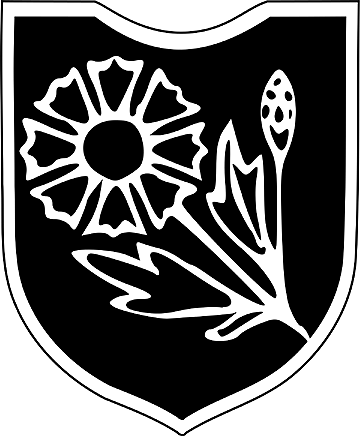
Interview with Fritz Haberstroh from the 22. SS-Kavallerie Division "Maria Theresia", Dusseldorf, 1988.
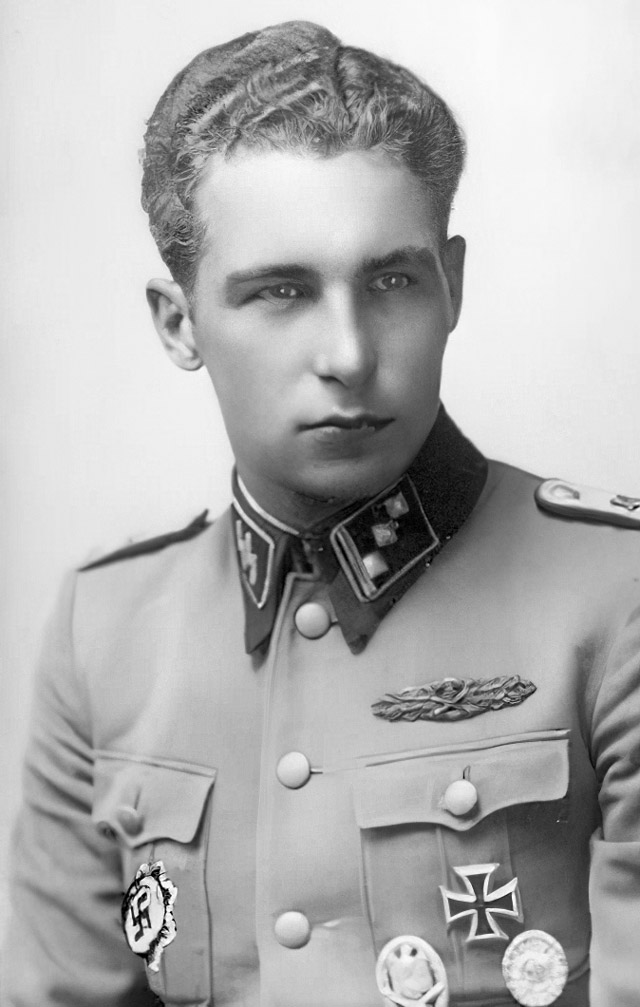


Interview with Fritz Haberstroh from the 22. SS-Kavallerie Division "Maria Theresia", Dusseldorf, 1988.

Thanks for agreeing to meet me, as I said I would like to ask you a couple questions about your service as a member of the Waffen-SS. My first question is what influenced you to join the SS?
Fritz: Great, you are a gentleman and keep good company; it is nice to meet you. To tell you my story it must first begin in my hometown HJ [Hitler Youth] group. I was admitted to the HJ in 1933, you could be a Pimpf and then one could go to the older boys. As you know my family was patriotic, and loyal. In spite of what many are forced to say today, the Führer had immense support from the people and all I heard was how much he did for Germany. This weighed on me as a youngster, and I could see how happy and content my family and those around us were. The mines were back to life, with better work safety and pay, like most areas of German life. When war broke out in 1939, I was prepared to volunteer, an SS newspaper was given to me and as I read it, I was taken in by the elite status the SS seemed to have. It was a movement within the National Socialist movement that was focused on protection of our racial stock. You do not have many people tell you that everyday, do you?
I knew the SS was where I wanted to serve, it was an elite band of men who were separate from the regular army; it was new, and I was excited to be a part. I passed the exams given, and my stock was pure, so I was admitted in 1940, and after the training I went to the Deutschland training replacement battalion. I was given the grey uniform; we wore the grey uniform during the war, only the Panzer troops wore the black. I felt very sharp walking to the train station in that uniform with the white runes, it made us stand out. I remember my boot was scraped on something sharp while getting on a train; I was so upset my uniform was blemished, I went right to the supply people when I arrived.
One thing taught to us was always look your best so you feel your best. Of course, the number one topic was always, trust your comrades. In the SS we did not have locks on our lockers; it was a big test of trust. You might like to know our instructors made our training very realistic to the point of shooting at us with live bullets. I remember our SS-Hauptscharführer had a captured French Mas [the MAS-38 is a French submachine gun designed in the 1930s and used by French and German forces during WWII] and he shot at us, of course it was far away from us to avoid hitting us.
It prepared us for the sounds and confusion of combat later on. Our training was the best in the whole German army, it was hard both mentally and physically, but it made us the best soldiers.
How did you feel about war being declared in 1939?
Fritz: I can speak for most Germans back then; we were both angry and sad. We as a people wanted our national honor back, and to have good standing in Europe. We did not want war or any conflicts that we would be involved in. The energy of our nation was being used to rebuild infrastructure, and erasing poverty. I saw this first-hand in the HJ when we would collect money to help widows and poor people repair themselves. We cleaned the towns and aided with the harvest, so no one went hungry. When war was announced, I had this feeling like all we had achieved would now be in danger. Poland became arrogant, refusing fair trade, persecuting Germans who were absorbed through the Versailles dictate, and from what I saw took a hard-line stance with Germany. We, as a nation, felt our land was taken unfairly, and many who were still considered German were left in a nation who did not want them.
The Führer had to do something about the situations that were happening on the border. Britain had no right to take the path they took; it was acting like a bully and cheering for a fight. Germany went into the war with the mindset of beating back Poland, taking back our land, and then working out peace. There was hope after, and again when the French surrendered, that the war would end. The warmonger Churchill had other plans; he kept Britain in the war in spite of many requests by Germany to end it. This caused the war to escalate on many fronts, to counter the British, and I am convinced Stalin was preparing to move west.
Did the Waffen-SS have the best weapons? I have heard Heer soldiers say the SS got better weapons than they did.
Fritz: I do not think so; in 1940 we had old or captured weapons. We had few vehicles, artillery, Panzers, and small arms. All SS units went into Russia on foot with little in ways of superior firepower. We had to rely on the Luftwaffe to aid us many times. So, in the early war period, the Heer had better weapons than we did. Now in the middle part till the end of the war it might be true. Reichsführer-SS Himmler visited us often and when he started hearing of the shortages and shortfalls, he wanted this fixed right away. By 1944 I know the SS Panzer regiments were called upon by the Heer for help often. All frontline SS units were equipped with the best that Germany could give. This caused resentment in the Heer, as later everything was in short supply and they argued they should have priority over a political army. This at a time when the SS was outdoing the Heer units and defeating enemy attacks, where the Heer ran.
I ended up in the cavalry, which was steeped in German tradition, so our stables were top notch and had the best there was. Himmler made sure the procurement office bought the best horses and equipment for us. It might surprise you that we were not very motorized until later in the war. We used horses to pull all our equipment for fighting, eating, and repair. Most horses came from Germany, but later we could buy horses in Russia, or use captured ones. I still see all the captured equipment we had to pick through. Some German units looked more Russian than German. Many units adopted abandoned animals like dogs, pigs, and cats; one even had a milk cow they took with them as a fresh supply.
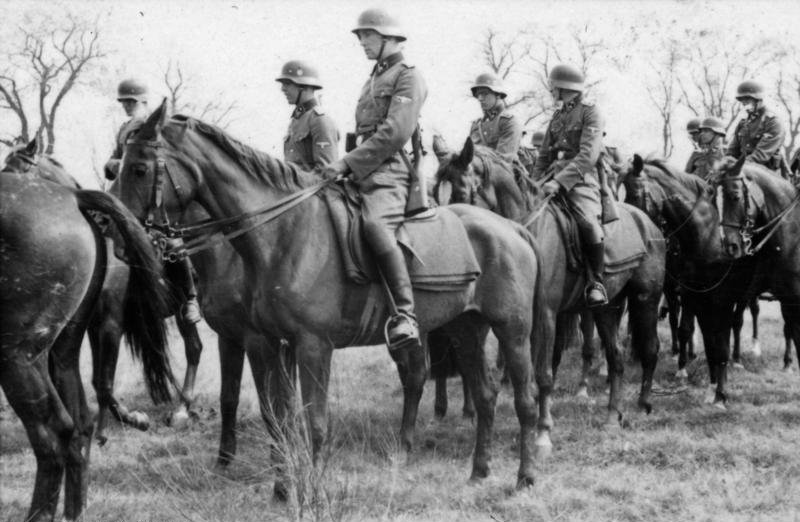
[Above: Horseback knights of "Maria Theresia". These brave men were nearly annhilated to the man helping their Hungarian comrades at war's end. Only 170 survived the ensuing slaughter and encirclement.]
I understand you served in Florian Geyer as well as Maria Theresia, I have read that war crimes were committed on the Eastern Front by these divisions. May I ask your opinion?
Fritz: It is true these divisions that I was a part of did have fights with bandits; we fought both the Red Army and bandits. Because of the nature of the war with bandits, they were not only illegal fighters, but many times criminals as well. You heard it from me; they were criminals who went on rampages against the people and German units. I remember our leader Fegelein gave a speech to the officers and in it he told us quote, "Your actions as German officers reflect on Germany, your honor, and your men, fight bravely and lead with courage. We fight a cruel enemy, unlike anything seen before. Show mercy when it is appropriate, but never falter in destroying this evil". While I do not speak for all men of the former Waffen-SS, I can attest that the claims by the Soviet Union that we purposefully murdered civilians, just because we wanted space, are a lie. I saw the good relationships we had with the population, many times going out of our way to provide for them.
I saw the crowds who came out to watch German units march through the streets to the front, waving and cheering. The instances where villages were attacked, or burnt down, were cases of a bandit camp being found out and taken. If the villagers aided the bandits, they became just as guilty and sometimes had to face justice. Khrushchev [Nikita Khrushchev was the First Secretary of the Communist Party of the Soviet Union from 1953 to 1964] made it sound like we existed only to go from village to village sacking everything before us, this is a lie, we had to battle the illegal bandits he was sending behind our front. German forces usually had decent relations with the people; it was our enemies who sent in agitators to stir them up with false propaganda. I saw a leaflet that was given to us, where it claimed we were raping children, and killing mothers. These godless people even claimed we were destroying churches and killing priests. The truth was that we helped reopen churches in the east and Balkans, giving security, so the people would pray for the first time in a while.
The bandits were mostly communists with a large mix of Jews and only a handful of others who hated our occupation. It was fortunate for us that they often formed separate bands and fought each other, often to extermination; of course, we get the blame for that too. With regards to Jews, they were in a bad situation; the people hated them for what happened during and after the revolution. They formed these bands and not only protected themselves from these militias, but they were soon aided by Moscow to fight us. This is where we had to execute them as illegal war fighters; it had nothing to do with them being Jews. In fact, some areas had Jews who wanted nothing to do with politics and they were left alone. My point being, I put no faith in any of the war crime accusations that the victors told after the war. I have no doubt that single men wearing the uniform of Germany had breakdowns and in a moment of anger and frustration, killed an innocent. That happens in warfare and in every army. In both the German SS and Heer that would have been punished, there was no allowance for cruelty, or battlefield executions.
I know we were not perfect as men or soldiers; no one is. Our men stole food stuffs from civilians, tried to cheat them, and seduced them. When these issues were brought to us, we dealt with them in a way that was fair to all. I remember a Russian woman had her Mayor come to our HQ saying a cart was taken by a man with runes on his collar. We were the only SS unit in the area, and a search did not yield any cart. It was ordered that a cart be made for this woman just to show we meant no disrespect or harm. She had a new cart by the end of the day, I am sure much better than her old one.
Did you know Fegelein? What did you think of him and what do you know of his death?
Fritz: Well, there were two Fegeleins in Florian Geyer, Hermann and Waldemar. Both were excellent officers and horse riders, being in the 1936 games. Waldemar is alive and you must meet him if possible; I have written to him a few times. Hermann could be somewhat arrogant; after all he was close to Himmler and later married Gretl Braun, Eva's sister. I have nothing bad I can tell you about either one, they were both good-looking cavalry men. One time we were going through a settlement and the girls clapped and fawned over them both. They could have had a harem, one girl even showed them her breasts; she was not all there in the head, as she did this to everyone. We laughed and ordered our men to erase any bad thoughts about her. I have met with many former comrades after the war and we have spoken of things that happened at the end. I can tell you the Führer did not order Hermann executed, it was an SD [Sicherheitsdienst, the intelligence agency of the SS] officer who did so on Bormann's order. He was to be allowed to continue to serve, and to fight. He was a very brave officer, and loyal to the Führer and the Reichsführer-SS; if he was absent, it was only to try to save his wife, when so many were being allowed to go home.
I know Himmler was trying to work out a separate peace, as he believed the Führer was incapacitated. Neither of them were doing anything traitorous or deceitful; the Allies like to portray the end as a complete breakdown of honor. Bormann is something of a mystery it seems, rumors are he turned and helped the Soviets and disappeared. It is a great mystery that we will never know. I do not want to believe it, but there were traitors around the Führer. There is no other way to explain why he was shot, the Führer took pity on him and refused to have him executed. That someone went behind his back and did this is quite sad. I understand his daughter died in Munich after a car accident, or something to that effect. I can say I am proud to have served with these men, if even for a short while.
I know also the Führer did die in the bunker, he did not flee anywhere. To him Berlin was his last stand, and he held on for that miracle until the Soviets were close to the bunker. Like what anyone would do in his desperate situation, he chose to end his life so that he was not captured. This is a military tradition that has happened often in history. In the absence of any hope of relief, the enemy at the doorstep, and seeing what happened to Mussolini and his party, he did the sensible thing. I think a case could be made for the Goebbels as well, knowing what was happening they did not want their children to be raped, attacked, or made to turn on their family. Today we read how demented and hateful they were, but we were not in their shoes. As I told you, I do not believe the stories of the papers or historians.
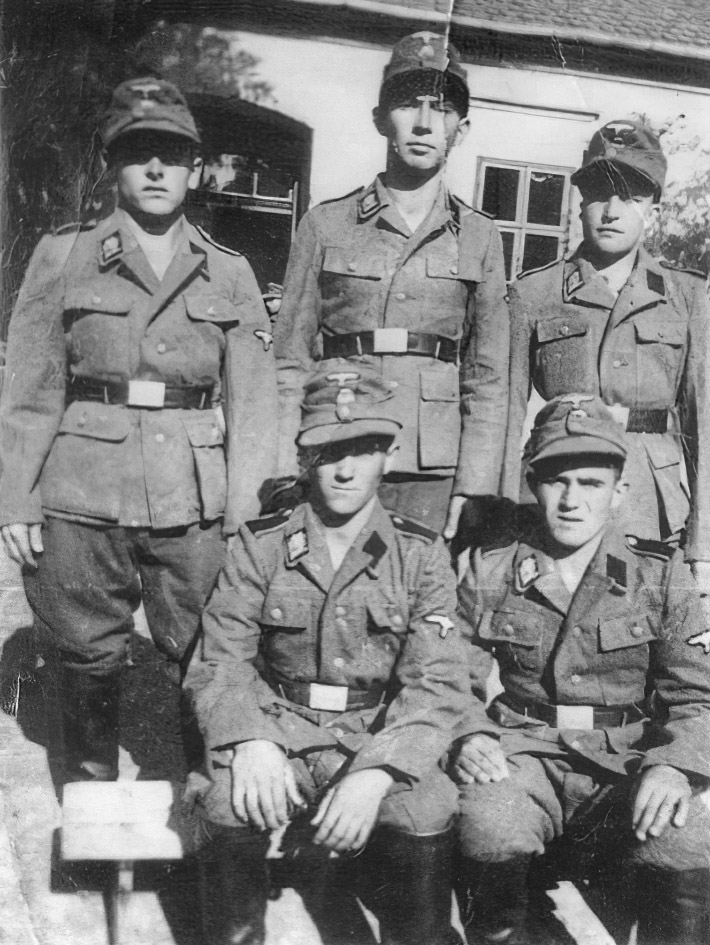
[Above: Men of the 22. SS-Kavallerie Division "Maria Theresia".]
[Above: "Maria Theresia" cuff title.]
[Above: A young soldier from "Maria Theresia", you can clearly see his collar tab.]

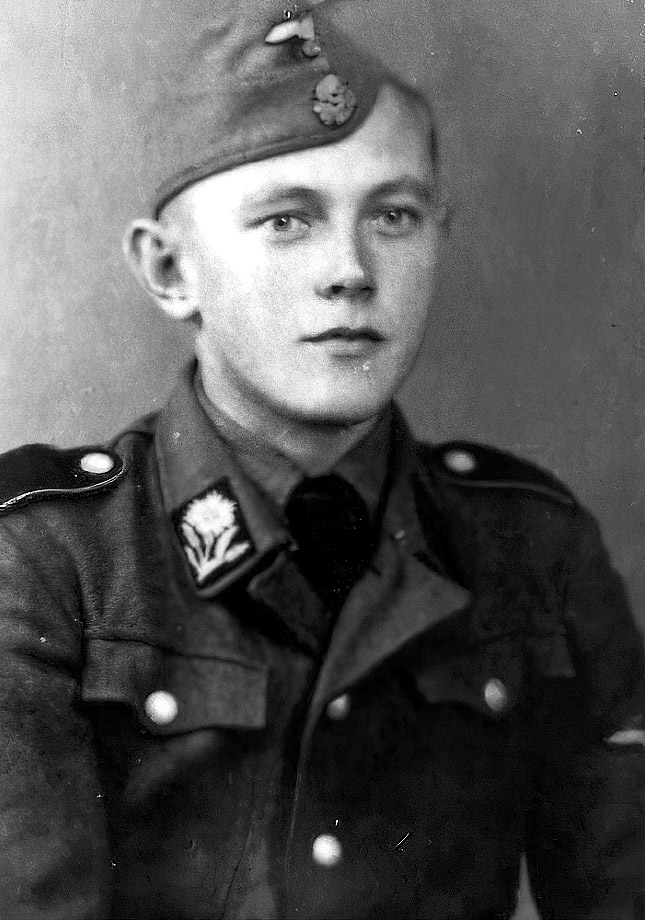
Back to Interviews